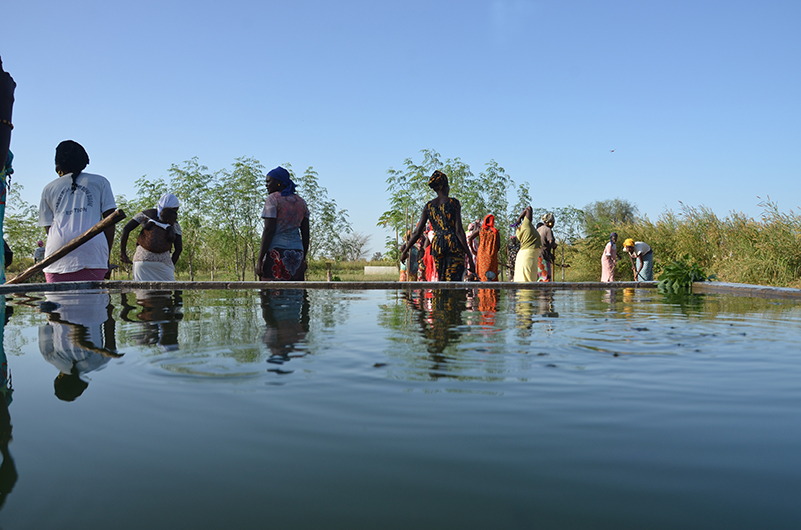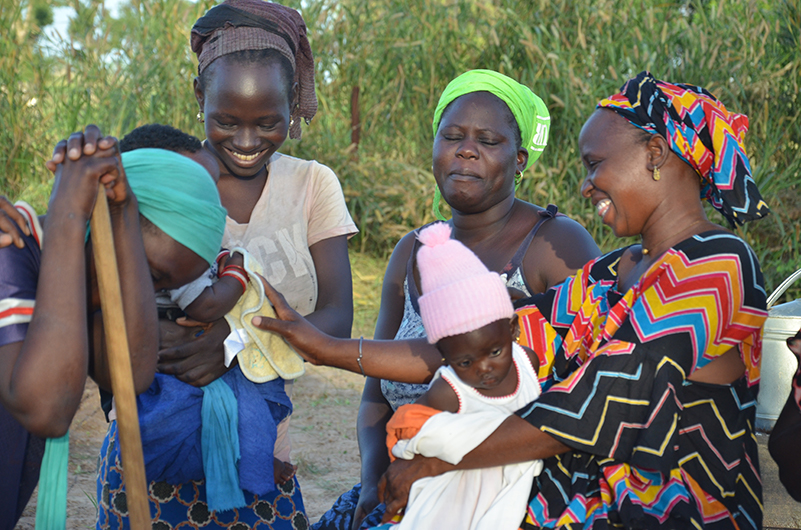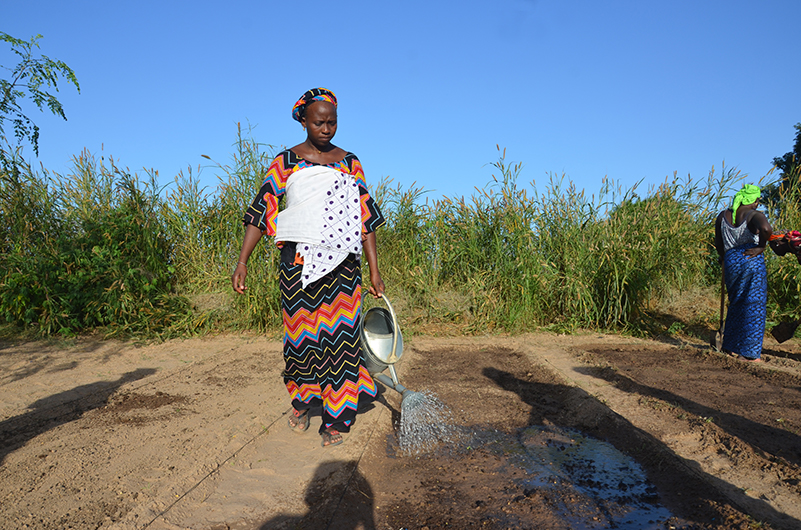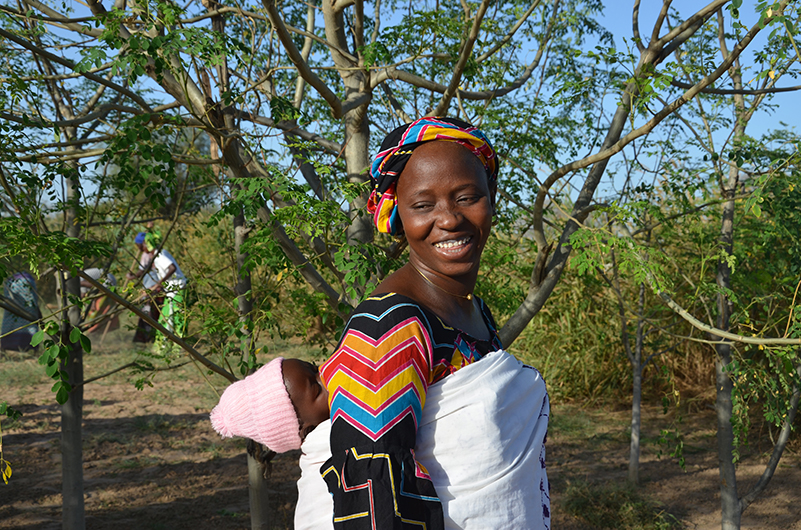Binta Diop is a mother supporting a family of five in Keur Daouda. Traditionally, women in Senegal are in charge of childcare, housekeeping, and cooking. “Before CREATE!, I did not have an occupation,” she tells us. However, through CREATE!’s training programs, Binta, and other women in the community are taking on new leadership skills through sustainable projects that align with Senegalese culture.
Senegal Culture: From Open Fires to Improved Cookstoves
Many families use traditional open fires to cook their daily meals. However, open fires can often be dangerous, produce a lot of smoke, and require a large amount of firewood. To combat these challenges, CREATE! introduces “Improved Cookstove” training to villages across rural Senegal! Improved cookstoves are made from free, locally available, and organic material.
Building Safer Kitchens for Her Children
With protective outer walls and a small opening for wood, improved cookstoves are a safer and more sustainable choice than open fires. After participating in a village-wide training with CREATE!, Binta built an improved cookstove in her kitchen. “My children can stay in the kitchen without any danger because it is not smoky,” she tells us. With the improved cookstove, women can safely cook meals in their kitchens without any danger to themselves or their children.
More Time for Other Activities
Without the responsibility of an open fire, Binta can focus on other tasks. “I have the possibility to do many things… with the improved cookstove, I don’t need to stay in the kitchen,” she says. Cooking a meal can often take up half of a woman’s day, especially with the task of collecting many pieces of firewood. However, the improved cookstove only uses 2-3 pieces of wood per meal which means less time spent collecting kindling. With this new free time, Binta trains with CREATE!’s technicians and works with other women in her village to sustain a year-round community garden.

Women in Keur Daouda’s community garden fill their watering cans at one of the many basins. They make to water their crops twice a day.
Working from “Home”
Community gardens not only improve the food security of Keur Daouda but act as a source of income. After feeding their families, women will sell excess vegetables in the market to generate revenue for their families year-round. “We have the possibility to work in our village now, and we don’t need to leave our family,” Binta explains.
Every day around sunrise, Binta walks with the other women in her community to their garden site, carrying her youngest child on her back. Many women have said how the cooperative community gardens have created a sense of community in their village. Before, women hardly got to see each other or have time to socialize. With the community gardens, women in the village see each other every day and get to talk, laugh, collaborate, and support each other.

Binta enjoys socializing with the other women in the community garden of Keur Daouda.
Cooking Fresh Meals Every Day
After Binta finishes her work in the garden, she returns to her home, carrying a large basket of fresh vegetables to prepare for her family. “We grow a lot of vegetables, and they are very nutritious. It improves our health because we eat it every day,” Binta explains. Before, Binta would have to travel to a distant weekly market to purchase vegetables. She tells us that often, she couldn’t afford the produce there since the sellers came from outlying regions and imported their vegetables.
Supporting Her Children’s Future
Binta supports her family now and also in the future. Every year CREATE!’s partner communities participate in an annual tree-planting campaign. Binta and her community of Keur Daouda plant a variety of different trees every year in the village, creating a lush oasis in the desert. This variety includes trees for firewood, medicine, shade, as well as fruits and nuts. “The tree-planting campaign will benefit our children in the future,” she tells us.
When asked what she likes most about CREATE!’s participatory projects, Binta responds, “I like all of the projects we are learning through CREATE!. It is important because there are few opportunities for me and other women in the village.” Binta’s children will grow up watching her work hard to improve their livelihood. Her sustainable and self-sufficient way of life will be passed on to her children, grandchildren, and generations to come.

Binta waters freshly planted seeds in the community garden.

